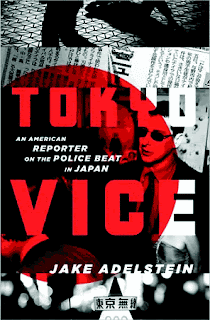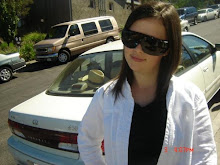I think most people felt the same way about the presidential election in 2008: The stakes were really high. Regardless of who they wanted to win, for a few months it was all people could talk about -- and talk they did, with a lot of passion. It was the kind of point in history that I think my kids will ask me about one day (when I eventually have kids, that is). So when I heard about
Game Change
, I placed a request for it at the library right away. I was still a bit late to the party, though; there were 24 people in line ahead of me. Now I'm here to tell you -- it was well worth the wait.
In 2008, the presidential election became blockbuster entertainment. Everyone was watching as the race for the White House unfolded like something from the realm of fiction. The meteoric rise and historic triumph of Barack Obama. The shocking fall of the House of Clinton - and the improbable resurrection of Hillary as Obama's partner and America's face to the world. The mercurial performance of John McCain and the mesmerizing emergence of Sarah Palin. But despite the wall-to-wall media coverage of this spellbinding drama, remarkably little of the real story behind the headlines has yet been told.
In Game Change, John Heilemann and Mark Halperin, two of the country's leading political reporters, use their unrivaled access to pull back the curtain on the Obama, Clinton, McCain and Palin campaigns. How did Obama convince himself that, despite the thinness of his resume, he could somehow beat the odds to become the nation's first African American president? How did the tumultuous relationship between the Clintons shape - and warp - Hillary's supposedly unstoppable bid? What was behind her husband's furious outbursts and devastating political miscalculations? Why did McCain make the novice governor of Alaska his running mate? And was Palin merely painfully out of her depth - or troubled in more serious ways?
Game Change answers those questions and more, laying bare the secret history of the 2008 campaign. Heilemann and Halperin take us inside the Obama machine, where staffers referred to the candidate as "Black Jesus." They unearth the quiet conspiracy in the U.S. Senate to prod Obama into the race, driven in part by the fears of senior Democrats that Bill Clinton's personal life might cripple Hillary's presidential prospects. They expose the twisted tale of John Edwards's affair with Rielle Hunter, the truth behind the downfall of Rudy Giuliani, and the doubts of those responsible for vetting Palin about her readiness for the Republican ticket - along with the McCain campaign staff's worries about her fitness for office. And they reveal how, in an emotional late-night phone call, Obama succeeded in wooing Clinton, despite her staunch resistance, to become his secretary of state.
Summary lifted from the book jacket. Colin typed it up for me because he can't stand my hunt-and-peck typing.
When
Game Change first came out, people were buzzing about it. It seemed to me that every reviewer, blogger, member of the peanut gallery all had comments about how gossipy and salacious the book was, especially because they were questioning the writers' methods of quoting and paraphrasing -- and leaving unnamed -- sources. Based on the buzz, I assumed that the book wouldn't be very substantial. (And believe me, I would have been fine with that.) It could not have been further from the truth. It's... well, substantial. I read a lot of gossip, because that's my thing, and this book isn't gossip. At least, I didn't get that vibe.
The main focus is the battle between Barack Obama and Hillary Clinton during the primaries; you can tell that this pair of opponents fascinates Heilemann and Halperin. I would have been interested to read some more about the other major players, but the Barack-Hillary relationship dominates the story-telling. I didn't follow the primaries closely at all, especially after the downfall of Edwards, so parts of the book were actually kind of suspenseful, because I didn't know who won each primary. I was surprised by how invested I became during reading, because of course I already knew the ultimate outcome -- regardless of how you view their methods of quoting sources, you have to admit that that takes talent. I really wasn't expecting the book to focus on the primaries so much, and I was especially surprised that the election night was basically skipped over. The book concludes on the morning of November 5, and Obama convincing Clinton to come on board as Secretary of State. It wasn't an unpleasant surprise, but at the same time I would have been happy to read a book that zeroed in on the presidential election.
I liked reading about Obama because he comes across as a normal person. I think he's a great man, but at the end of the day he's still just a guy. And the writers recognize that, which is nice. Even though I do think he's a great man, I try not to drink the kool-aid on this one, you know? So it's refreshing to learn about the days when he lost his temper or complained about something, just like I've been known to do occasionally. (Right, Colin?) The Clintons are seriously fascinating. I think people will be writing about their dynamic and influence for years to come. And wow... I was so wrong about John Edwards. It's a little scary how off-base I was. Even taking everything in this book with a grain of salt, John comes across as a delusional pretty boy and Elizabeth is just plain scary. One staffer told the writers about one day when, after some crisis in the campaign, John left him a voicemail telling him that he did well and John understood that things happen and to keep his chin up (I'm paraphrasing, of course). The next voicemail the staffer received, basically moments later, was from Elizabeth chewing him out -- the staffer says that Elizabeth called him poison and "dead to them." Yeesh.
You can tell that the writers don't feel the McCain campaign was as compelling as the Democratic primaries. They do cover the trials and tribulations of McCain securing the nomination and fighting to keep his head above water during the presidential campaign, but not in nearly as much detail. It took a long time to get around to Sarah Palin, and when they did it fell a bit flat. I personally don't think much of her, but you can't deny that she's a lightning rod. No one's opinion of her is just "meh." Everyone has a strong and immediate love or hate of her. So I expected to be more invested while reading about her role, but I wasn't really. They try to make you wonder if she's mentally unstable, but their case is a bit thin. Don't get me wrong, there is some interesting stuff here, just not as much as I expected. (Expectations are everything, aren't they?)
I recommend that you check out this book if you're interested in learning more about this election. Enough time has passed to put events into perspective, and I think it would be interesting even if you had followed the news closely during this time.


















